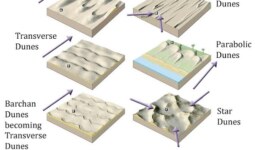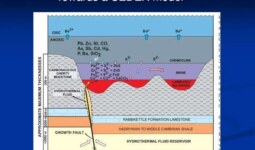
Introduction
Engineering geology is a crucial field that plays a pivotal role in various construction and infrastructure projects. It’s the science that bridges the gap between geology and engineering, providing essential insights to ensure the safety and sustainability of construction endeavors. In this expert article, we’ll explore what engineering geology is, its significance, salary prospects, and more.
What is Engineering Geology?
Engineering geology, in simple terms, is the study of how geological factors impact construction projects and engineering activities. It involves assessing the geological conditions of a site to make informed decisions regarding design, construction, and risk mitigation.
Here are some key aspects:
- Geological Site Assessment
- Evaluating geological features for construction.
- Rock Mechanics
- Study of rock behavior under various conditions.
- Soil Properties
- Analyzing soil composition and its engineering properties.
- Geotechnical Reports
- Documenting geological findings for project planning.
Importance of Engineering Geology
- Safety Assurance: Engineering geologists ensure structures are built on a solid foundation, reducing the risk of landslides or collapses.
- Resource Optimization: By understanding site geology, engineers can optimize resources, saving both time and money.
- Environmental Impact: Assessing geological impacts helps minimize harm to the environment during construction.
Facts and Figures
Engineering geologists work in various sectors, including civil engineering, mining, and environmental consulting.
The demand for engineering geologists is steadily growing, with a projected job growth rate of 11% by 2030.
In the United States, the mediakn annual salary for engineering geologists is around $85,000.
The Role of an Engineering Geologist
Engineering geologists play a multifaceted role in construction projects. They:
- Identify potential geological hazards.
- Recommend appropriate foundation designs.
- Analyze soil and rock properties.
- Assess the impact of excavation and construction on the surrounding environment.
Conclusion
Engineering geology is a vital discipline that ensures the success and safety of construction projects. It combines geological expertise with engineering principles to create sustainable, resilient structures. As an expert in this field, we encourage professionals and enthusiasts to explore the opportunities it offers, both in terms of career growth and making a positive impact on the environment.
FAQs
Is engineering geology only relevant to large-scale construction projects?
No, engineering geology is essential for projects of all sizes, from small buildings to massive infrastructure developments.
How can I become an engineering geologist?
To become an engineering geologist, you typically need a bachelor’s degree in geology or a related field, followed by specialized training or a master’s degree in engineering geology.
Are there any international organizations for engineering geologists?
Yes, organizations like the International Association for Engineering Geology and the Environment (IAEG) provide resources and networking opportunities for professionals in this field.




Leave a comment